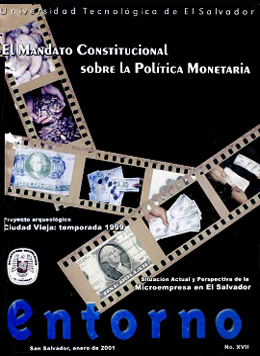The constitutional mandate
DOI:
https://doi.org/10.5377/entorno.v0i17.7687Keywords:
Constitutional state, Government policy, El SalvadorAbstract
This article has been compiled with chapter III and number VI, of a broader document entitled: Scope and Limits of the Legislative Regulation of the Exercise of Constitutional Rights in the Fundamental Law of 1960. Prepared by Álvaro Magaña, President of El Salvador during the period from 1982 to 1984, Dr. in Jurisprudence and Social Sciences from the University of El Salvador, Master in Economics from the University of Chicago, Illinois.
All the time we lost and those who read the above, when it is more than clear in the constitution, only has the purpose of not losing time activists, because once and for all, if they want to be independent, only, we reiterate, we must do only one thing: reform the Constitution and not only Art. 111.
We said that about two years ago when we wrote about this issue and it was a study that was never questioned and that I was forced to write when they approved a constitutional reform to prohibit the Central Reserve Bank financing to the State, which had to be perfected with the ratification (that was not made) of the last Legislative Assembly that concluded its period of May 31st.
Our work was based on constitutional rules such as Article 111 and the very meaning of the autonomy of the auxiliary bodies of the State that cannot be confused with independence, unless we do not know the difference between administrative function and governmental power.
Downloads
583
Downloads
Published
How to Cite
Issue
Section
License
© Entorno
It is required that the authors transfer the right of re-production of their articles to the Entorno Journal

